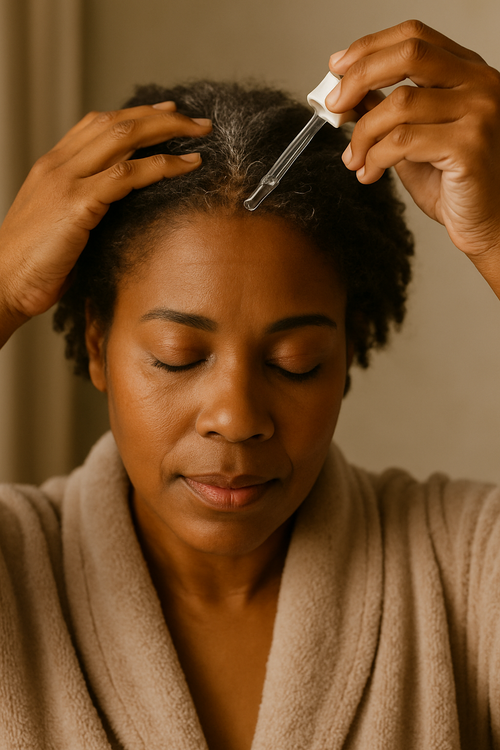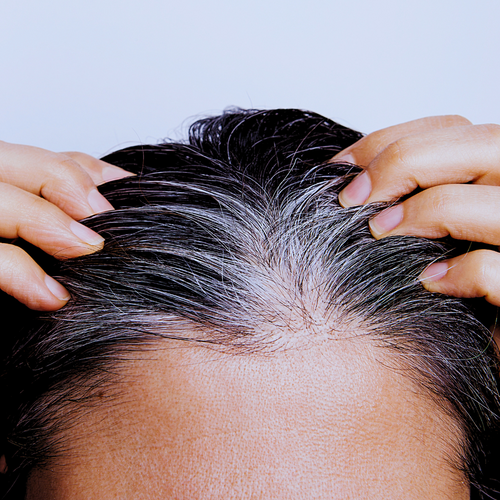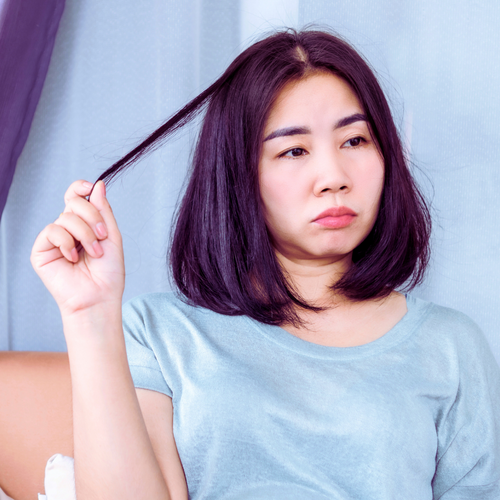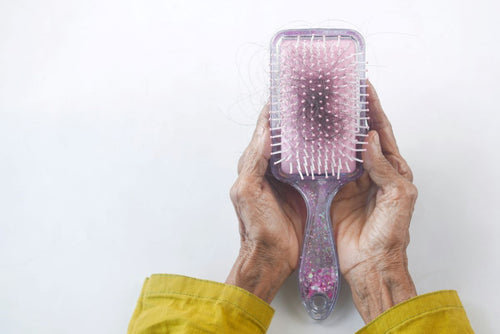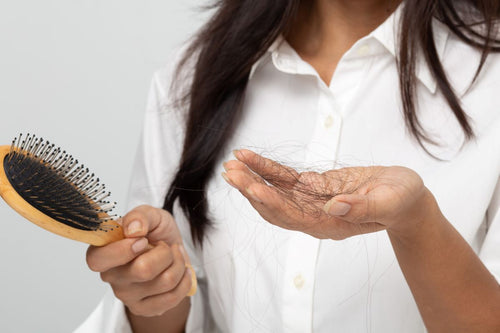In today's fast-paced world, stress has become an inevitable part of our lives. Juggling work, family, social obligations, and other responsibilities can take a toll on our well-being. Among the many negative impacts stress can have on our bodies, one that often goes unnoticed is its connection to hair loss.
Yes, you read that right – stress and hair loss are closely related. In this post, we'll dive into the effects of stress on hair and explore how stress can lead to hair loss. If you're wondering how to regain hair loss caused by stress, you've come to the right place.
Understanding the Prevalence of Stress
It's no secret that stress has become a widespread concern in the United States. According to the American Institute of Stress, among Baby Boomers and Gen X, the most common sources of stress are economic and health related concerns. For younger people, members identifying as Gen Z, the top sources of stress were work and health related concerns.
Around 76% of Americans say that they have experienced physical symptoms due to stress in the prior month. This means that the majority of us are no strangers to the effects of stress. Stress can stem from various sources – from work pressures and financial worries to personal conflicts and health concerns. Amidst this stressful landscape, it's essential to recognize its potential impact on our physical health, including our hair.
Types of Hair Loss Caused by Stress
Stress can lead to several types of hair loss, the most common being:
Telogen Effluvium:
This type of hair loss occurs when stress triggers a large number of hair follicles to enter the resting phase (telogen phase) prematurely. This leads to shedding and thinning of hair, noticeable especially when washing or brushing hair.
Alopecia Areata:
Stress can also contribute to autoimmune reactions, like alopecia areata, where the immune system mistakenly attacks hair follicles, causing hair to fall out in small, round patches.
Trichotillomania:
Stressful situations might trigger compulsive behaviors like hair pulling (trichotillomania), leading to hair breakage and loss over time.
Recognizing Stress-Related Hair Loss
Wondering if your hair loss is due to stress? Here are some signs to look out for:
Rapid Onset:
If you've experienced a sudden increase in hair loss after a period of heightened stress, it could be a stress-related issue.
Generalized Thinning:
Stress-induced hair loss sometimes leads to diffuse thinning across the scalp rather than specific bald spots.
Increased Shedding:
Pay attention to excessive hair shedding during activities like showering or combing your hair. It’s normal to shed 50-100 hairs per day. If you’re suddenly shedding more, it’s time to pay attention.
No Family History:
If you have no family history of significant hair loss, stress could be a culprit.
Tips for Managing Stress and Promoting Hair Growth
Now that we've established the connection between stress and hair loss, let's explore some self-care practices to help you manage stress and potentially regain your hair's health:
Practice Mindfulness:
Engage in meditation, deep breathing, or yoga to reduce stress levels and promote relaxation. Spending time in nature and in green spaces can also reduce stress and anxiety.
Regular Exercise:
Physical activity releases endorphins, which are natural stress relievers. Aim for at least 30 minutes of exercise most days of the week.
Healthy Diet:
Nourish your body with a balanced diet rich in vitamins, minerals, and proteins that support hair growth.
Adequate Sleep:
Prioritize quality sleep to ensure your body has sufficient time to recover from daily stressors. When you sleep, your body is in recovery mode, doing damage control and repairing all the damage that a day’s worth of stress can cause.
Use an Adaptogenic Serum:
Consider using an adaptogenic scalp serum. Adaptogens help your body manage stress and improve your body’s stress response. An adaptogenic scalp serum like Revita+Fol scalp serum is a helpful part of a calming nightly self-care routine
Limit Caffeine and Alcohol:
Excessive caffeine and alcohol intake can exacerbate stress and disrupt sleep patterns.
Hobbies and Leisure:
Engage in activities you enjoy, whether it's reading, painting, gardening, or spending time with loved ones.
Time Management:
Get out that planner! Organize your tasks and responsibilities to avoid feeling overwhelmed by stress.
Professional Help:
If stress becomes unmanageable, consider seeking help from a therapist or counselor who can provide effective coping strategies.
Understanding the Long-Term Outlook
It's crucial to remember that stress-related hair loss is often reversible. Once stress levels are reduced and managed effectively, many individuals experience hair regrowth over time. However, it's important to be patient; regaining hair lost due to stress can take several months.
Summary
In a world filled with constant demands and pressures, stress has a sneaky way of affecting our bodies, including our precious locks. By recognizing the signs of stress-related hair loss and adopting healthy coping strategies, you can take control of both your stress levels and your hair's well-being. Remember, the journey to regaining lost hair from stress begins with self-care and mindfulness. So, embrace the power of relaxation, prioritize your well-being, and watch your hair flourish once more.



